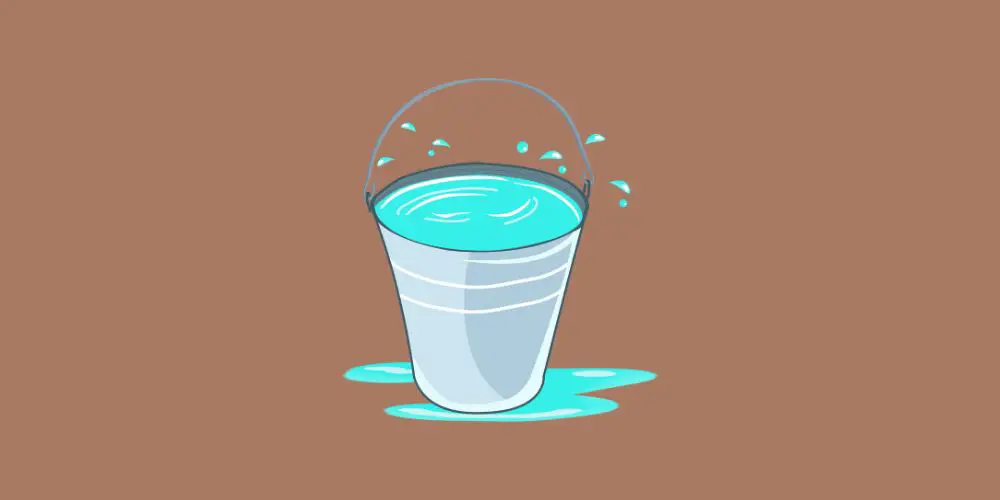Many people are looking for ways to conserve water, and one way to do that is by using grey water.

Grey water is the wastewater from showers, laundry, and sinks – essentially, any water that doesn’t contain toilet waste. While some people are apprehensive about using grey water on their plants, the truth is that it’s perfectly safe – as long as you take the necessary precautions.
There are a few steps that you can follow to safely use grey water in your garden or yard.
Here’s everything you need to know about using grey water to keep your plants healthy and hydrated.
What is Grey Water?
As we said before, grey water is the wastewater from showers, laundry, and sinks. It does not contain any toilet waste or chemicals – just the soapy water from your daily activities. You can even collect rainwater to use as greywater for your plants.
It may seem gross or dirty, but don’t worry – it won’t be any different from the water that your plants are already used to.
You just need to make sure that any soap, shampoo, or conditioner has been washed out of the water. You don’t want to introduce any harsh chemicals into your plants, which could harm them or kill them.
If you’re worried about bacteria in the grey water, consider installing a simple purification filter that can remove any harmful contaminants.
Once you have all of your precautions in place, you can start using grey water to keep your plants healthy and hydrated. This is a great way to recycle water and to be more eco-friendly overall.
Is Grey Water Safe for Plants?
Many people view grey water as unsafe for their plants. In reality, however, grey water is rich in nutrients that your plants will love. The soap in the grey water also acts as a natural insecticide, so using grey water is a great way to keep your plants healthy and free from pests.
Of course, you do need to be careful when using grey water. Make sure that you dilute the grey water at a 1:10 ratio and avoid using it on any plants that are very sensitive or prone to rot.
When used correctly, grey water is perfectly safe for your plants and can help them grow strong and healthy. So if you’re looking for an eco-friendly, low-cost way to water your garden or yard, consider using grey water instead of tap water.
How Can I Use Grey Water on My Plants?
The best way to use grey water is to collect it in a bucket while you’re showering or doing laundry and then use it to water your plants directly. You can also funnel it into a watering can or large container and then carry it out to your garden.
If you’re worried about the grey water coming in contact with your skin or getting into your eyes, invest in some protective clothing and goggles. This will help keep you safe while also ensuring that the grey water goes where it needs to go.
Remember, it’s important to use the grey water within 24 hours because after that time bacteria can start to grow.
What Plants Should Be Watered With Grey Water?
Generally speaking, most plants will love being watered with grey water. However, there are some exceptions. Avoid using grey water on plants that have very small leaves or are very delicate because they could be damaged by the soap in the grey water.
It’s also a good idea to avoid using grey water on potted plants because they can be more susceptible to root rot.
Some examples of plants that do well with grey water are succulents, roses, citrus trees, and vegetables. If you’re not sure what type of plants to use grey water on do some research before you get started to make sure that you know exactly what types of plants will benefit from grey water.
As long as you take the necessary precautions, grey water can be a great way to keep your plants healthy and hydrated without spending any extra money or using up too much time.
Final Thoughts
Grey water is a great way to conserve water and keep your plants healthy at the same time! Just remember to use it within 24 hours, avoid watering delicate plants with it, and never use grey water on potted plants.
Asides from that, grey water is safe for most plants and can be a great way to keep your garden healthy and hydrated.

